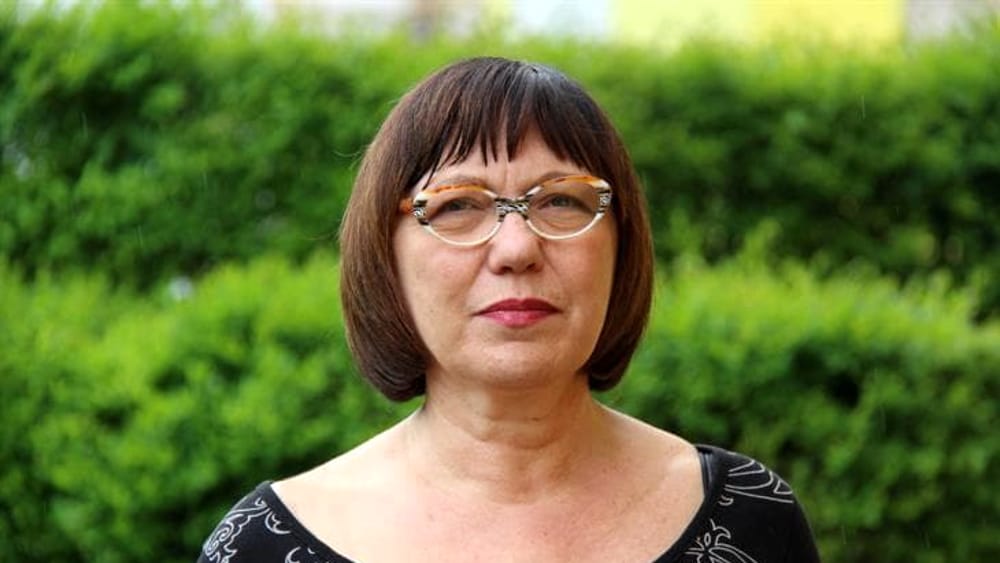The family caregiver law is coming to Tuscany: but where is the national one?

The fate of the family caregiver lies in the hands of the regions. More than a dozen have now approved their own legislation to meet the needs of a growing, increasingly needed, yet still largely invisible and decidedly under-supported population: that of family caregivers. The Tuscany region has approved the "Provisions for the Promotion and Recognition of the Family Caregiver" ( Law 55/2025 ), which it defines as "of fundamental importance within the welfare system" and "an informal component of the care network that revolves around the individual, fully involved in the integrated system of social, socio-health, and healthcare services."
The law, in addition to recognizing family caregivers as an integral part of the welfare and care system, mandates their involvement in developing personalized care and living plans and identifies a series of services and supports specifically for those who care for a dependent family member on a daily basis. These include an integrated support network of social services , healthcare, local authorities, associations, and the Third Sector; a regional listening center with a telephone service for guidance, support, and information; and promotional initiatives to raise awareness of the role of caregivers. To implement these plans, the Region has allocated €175,000 annually until 2027 .
Regional President Eugenio Giani expressed great satisfaction: "It was important to incorporate into regional legislation, particularly in its relationship with the social and health services network, a figure who performs a valuable and difficult role in many families, and does so voluntarily and unpaid. We thus strengthen our commitment to supporting the most vulnerable families and individuals, offering them real tools for assistance and care, also aimed at combating loneliness and isolation." For Welfare Councilor Serena Spinelli , this is "an important step to ensure that this figure, crucial to the quality of life and well-being of the person being cared for, can best perform their duties, relying on the support of all the social, health, and social-health actors with whom they interact."

ACLI Toscana also applauds: "With this law, the Tuscany Region has taken a fundamental step. The involvement of the third sector is particularly significant, with solidarity networks, volunteers, and associations that, together with institutions, are building a local network capable of supporting caregivers, combating their isolation, and enhancing their daily commitment," explains President Elena Pampana . For Vice President for Welfare, Manuela Pisaniello , the new legislation "is an act of civility that restores dignity to a commitment that is too often invisible. At ACLI, we will work to ensure that the proposed measures have concrete impact throughout Tuscany, working alongside local communities and the families who experience this reality. The challenge now is to translate the law into concrete actions of support, training, and listening, in collaboration with local authorities, associations, and social networks."
The challenge now is to translate the law into concrete actions of support, training and listening, in collaboration with local authorities, associations and social networks.
Manuela Pisaniello, vice president of ACLI Toscana with responsibility for welfare
But what changes can a regional law truly make possible and effective, in the absence of a national law, long-awaited for a decade and yet to be fully implemented? To what extent can regional laws—more than ten have been passed so far, following the path pioneered by Emilia-Romagna in 2014—adequately respond to the needs expressed by an ever-growing population, increasingly burdened by the economic, emotional, and social costs of caring for a dependent family member?
Elena Improta , founder of the Oltre lo sguardo aps association, lives in Orbetello, where she founded “ La casa di Mario ,” a cohousing facility for people with disabilities lacking family support. She moved here exactly five years ago, after leaving Lazio for Tuscany: a choice dictated by the fact that the Dopo di noi law offered more resources and hope here. “But today, both have proven insufficient. La Casa di Mario is funded for only four months a year, while the rest is paid for by us.” The home currently houses seven people with disabilities, including Mario, Elena's son. Elena is the in-person coordinator, peer counselor, and, above all, caregiver for this group. Thirty-six years after Mario's birth, she knows well what a family caregiver needs. “And I don't see this in the recently approved regional law. A series of services are announced, but in reality, they already exist : I'm thinking of psychological support, as well as training courses. It is not clear what will actually change and how the resources will be invested."
The regional law announces a series of services, which in fact already exist: I'm thinking of psychological support, as well as training courses. It's unclear what will actually change and how the resources will be invested.
Elena Improta, caregiver and founder of the Oltre lo sguardo association
But what does a family caregiver need, then? "Certainly recognition, but intended as a census: it must be possible to know how many of us there are, who we are, and where we live, to recognize the social and even health value of what we do. Because many family caregivers effectively care for hospitalized people at home. And this comes at a very high emotional and social cost. Therefore, the 'recognition' provided for by the law is good, but only if it is in these terms," says Improta.

But more than "recognition" and "promotion," family caregivers, according to Improta, have three fundamental needs , which regional law, however, cannot address: "First, the law should guarantee services and support that allow caregivers—almost always female caregivers—not to leave work, as happens in most cases. Or, alternatively, to find a new job after leaving it. On the one hand, therefore, targeted training courses for this purpose; on the other, home services or day centers that allow caregivers to distance themselves from the family member they care for. The fact that so many caregiver mothers "reinvent" themselves as OSS or OEPA is a failure. I myself, performing this role in the family home, feel as if I never free myself. Without effective support for the family caregiver's reintegration into the workforce, they will remain locked in that confinement of compulsory care to which they are destined by choice and out of love. But we refuse to be this way for economic and political reasons ."
In addition to employment policies, two other supports family caregivers need, which can only come from a national law, are " adequate support for good practices (there are many, including Casa di Mario, editor's note) that support families and caregivers. And financial and pension recognition for the commitment and sense of responsibility we demonstrate, which for now is simply "dumped on us" by the state."
A national law is therefore necessary and urgent, but it seems to be stalled again. Loredana Ligabue , promoter and secretary of Carer Ets, recalls: " After the inter-ministerial meeting, nothing more was heard. We don't have the minutes of that meeting, nor the text of a proposal that Minister Alessandra Locatelli has repeatedly announced as imminent and which we are all waiting to examine."
While awaiting national legislation, however, it is important for the Regions to legislate on this issue and equip themselves with regulatory tools. "Some powers are exclusive to the State, others are the Regions': both can and must contribute to strengthening the capacity to intervene in a process of structural change."

With particular regard to the recent Tuscan law, "it is essential that the role of the family caregiver be effectively incorporated into the network of services : this will create a new capacity for relationships and intervention between informal and formal caregivers with respect to the needs of a growing population that, due to aging or congenital or acquired pathologies, requires long-term care."
On the one hand, therefore, there is the State, which "is responsible for defining the basic elements that lead to the recognition of the role and functions of all citizens who provide care. On the other, there is the competence and scope for intervention of the regions, which have greatly anticipated the role of the State by recognizing—for the first time in 2014, with Emilia-Romagna doing so—the inclusion of a new legal entity, the family caregiver, in the welfare system. The importance of national law lies in guaranteeing all citizens the same legal basis. To date, for the definition of the family caregiver, we refer to paragraph 255 of the 2018 budget law, which, however, some regions have even gone beyond, expanding the scope to include the network of friends, in addition to that of cohabiting and non-cohabiting family members: a particularly crucial issue for an aging population and increasing loneliness."
The importance of national law lies in guaranteeing all citizens the same legal basis. To date, for the definition of a family caregiver, we refer to paragraph 255 of the 2018 budget law, which, however, some regions have exceeded.
Loredana Ligabue, secretary of Carer Ets
Of course, there remain the exclusive powers of the State, such as those highlighted by Improta and which Ligabue also highlights, as fundamental for supporting family caregivers: "in particular, social security, tax, and employment policies , which must necessarily accompany social-welfare support interventions."
Another key element in regional laws is " the interaction between formal and informal caregivers and the recognition of the latter (the family caregiver, specifically) as part of welfare, moving it from the private dimension of care to a social function, closely linked to services and professionals. For this reason, while a national law remains paramount, I believe the work of the regions is crucial, just as I believe it is essential that the family caregiver law be included within the law reforming care for the elderly on the one hand and the disability reform on the other. Law 33 and its implementing decrees contain important guidelines specifically regarding family caregivers: maximum attention must be paid to harmonizing the provisions of the various regulations, so that we can move from the recognition of this right to the actual possibility of exercising it, through adequate resources and support interventions," concludes Ligabue.
VITA has dedicated its April 2025 magazine to the loneliness of family caregivers and the urgent needs that national law must address. If you already have a subscription, read it here . If you'd like to subscribe, you can do so here .
In the opening photo, Mario's House
Just over a euro a week, a coffee at the bar, or maybe less. 60 euros a year for all VITA content, ad-free online articles, magazines, newsletters, podcasts, infographics, and digital books. But above all, to help us report on social issues with ever greater strength and impact.
Vita.it





